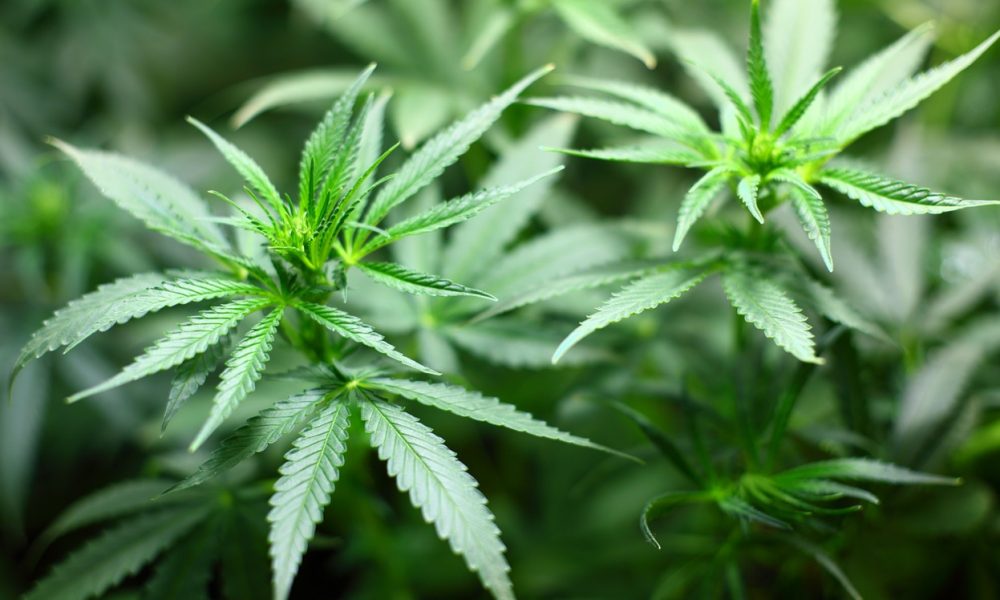New marijuana and psychedelics amendments have been filed by bipartisan congressional lawmakers as part of large-scale spending bills—including proposals that would end the practice of drug testing job applicants at certain federal agencies for marijuana.
Rep. Robert Garcia (D-CA) introduced two versions of the same cannabis measure for separate appropriations bills, one covering Military Construction, Veterans Affairs and Related Agencies (MilCon/VA) and another on Agriculture, Rural Development, Food and Drug Administration and Related Agencies. It would prevent the use of funds to drug test most applicants for cannabis at the agencies covered by the legislation.
There’s also an amendment to the MilCon/VA bill from Reps. Jack Bergman (R-MI) and Lou Correa (D-CA) that’s meant to encourage the U.S. Department of Veterans Affairs (VA) to carry out “large-scale studies” into drugs like psilocybin and MDMA that have been designated as “breakthrough therapies” by the Food and Drug Administration (FDA). The sponsors are also the founding co-chairs of a congressional psychedelics caucus that promotes research into entheogenic substances.
The cannabis measures from Garcia would prevent THC drug testing for job applicants in the relevant federal agencies, except for “positions listed as Presumptive Testing Designated Positions by the Selection of Testing Designated Positions Guidance under Federal Drug-Free Workplace Program.”
The proposals also curiously only cover select states, including some such as Tennessee and Texas that have extremely limited low-THC medical cannabis programs while excluding others such as Ohio and Pennsylvania that have more comprehensive medical marijuana laws.
Earlier this month, Garcia had also filed an amendment to the National Defense Authorization Act (NDAA) that would have prevented security clearance denials for federal workers over prior cannabis use. But that proposal, in addition to more than a dozen other drug policy reform amendments filed by bipartisan lawmakers, were ultimately blocked by the GOP-controlled House Rules Committee, which will also decide whether these new amendments can receive floor votes.
The text of the Bergman-Correa legislation, meanwhile, does not specifically mention psychedelics and simply simultaneously increases and decreases funding in an unrelated part of the bill, a common tactic in appropriations legislation by members who want to send a message to federal agencies about key priorities without actually altering legislative text.
The summary of the proposal posted by the Rules Committee says it “increases and decreases the Medical and Prosthetic Research account at the Department of Veterans Affairs to ensure the VA conducts large-scale studies into the efficacy of drugs that have FDA-designated Breakthrough Therapy status to treat post-traumatic stress disorder through VA-administered drug assisted therapy trials.”
The FDA has designated psilocybin and MDMA to be Breakthrough Therapies.
Correa and Bergman have been actively promoting efforts to streamline studies to develop psychedelic-based therapies, recently touting new guidance for researchers interested in exploring the subject that was released by FDA, for example.
—
Marijuana Moment is tracking more than 1,000 cannabis, psychedelics and drug policy bills in state legislatures and Congress this year. Patreon supporters pledging at least $25/month get access to our interactive maps, charts and hearing calendar so they don’t miss any developments.
Learn more about our marijuana bill tracker and become a supporter on Patreon to get access.
—
The three measures—which build on other amendments on medical cannabis recommendations for military veterans that were recently filed by separate groups of bipartisan lawmakers on the VA spending bill—will need to be made in order by the House Rules Committee if they’re to receive floor consideration. Given what happened with the NDAA drug policy amendments this month, it’s not clear if leadership will allow that.
The panel has not yet scheduled a meeting to consider the two spending bills in question.
Meanwhile, Democratic senators are seeking to pass a series of marijuana reform amendments through its version of the NDAA.
One of the proposals, led by Sen. Brian Schatz (D-HI), would allow veterans to use medical cannabis in states and territories where its legal, mirroring a standalone bill that the senator introduced in April.
It would additionally protect doctors who discuss and fill out paperwork to recommend medical marijuana for veterans. And it would require the U.S. Department of Veterans Affairs (VA) to support clinical trials investigating the therapeutic effects of cannabis in the treatment of conditions such as pain and post-traumatic stress disorder (PTSD) that commonly afflict veterans.
It’s currently unclear if Senate Democrats and Republicans will reach an agreement on inserting any of the amendments in the final bill—or if the GOP-controlled House would be willing to go along with them if they are ultimately attached on the Senate side.
Separately, the Senate Appropriations Committee recently approved an amendment to allow VA doctors to issue medical cannabis recommendations and released a report for the relevant spending bill that calls on the department to facilitate medical marijuana access for veterans and explore the therapeutic potential of psychedelics.
House and Senate appropriators have also approved large-scale annual spending bills that once again include language to protect state medical cannabis programs, as well as a controversial rider to block Washington, D.C. from implementing a system of regulated marijuana sales.
New York Regulators Vote To Allow Marijuana Farmers Markets, While Nearly Doubling The Number Of Provisional Retailer Licenses
Read the full article here









